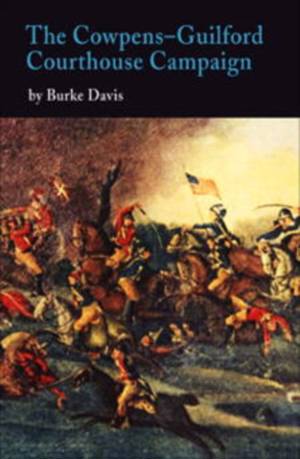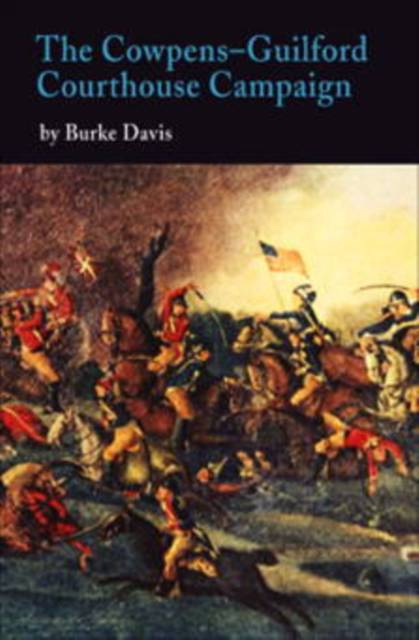
- Retrait gratuit dans votre magasin Club
- 7.000.000 titres dans notre catalogue
- Payer en toute sécurité
- Toujours un magasin près de chez vous
- Retrait gratuit dans votre magasin Club
- 7.000.000 titres dans notre catalogue
- Payer en toute sécurité
- Toujours un magasin près de chez vous
Description
On January 17, 1781, near Cowpens, a drover's camp on the old Cherokee trading trail in Carolina territory, Continental troops and horsemen under the direction of Daniel Morgan inflicted a stunning defeat on a crack British detachment led by the ruthless Banastre Tarleton, commander of Lord Cornwallis's cavalry. Although Tarleton fled the battlefield to avoid capture, the American victory effectively destroyed the light corps of the British army in the South. Stung by the loss, Cornwallis ordered a deliberate and dogged chase of the American rebels, a campaign that meandered through the wilderness and small communities of the Carolinas.
After months of retreating, the Continental army under the command of Nathanael Greene, a Rhode Island Quaker, chose to confront the British army near Guilford Courthouse, North Carolina. Although they fought with tenacity, the Americans were forced to retreat, but Cornwallis's army had suffered casualties too heavy to pursue the Continentals and instead fell back to the port city of Wilmington. Discouraged by the guerrilla tactics, Cornwallis moved north, to his final defeat at Yorktown. In The Cowpens-Guilford Courthouse Campaign, Burke Davis provides an engaging account of the key battles in the American South, demonstrating that it was here that the strength of the Continental army's resistance to superior British forces laid the foundations for the final American victory.Spécifications
Parties prenantes
- Auteur(s) :
- Editeur:
Contenu
- Nombre de pages :
- 224
- Langue:
- Anglais
Caractéristiques
- EAN:
- 9780812218329
- Date de parution :
- 16-09-02
- Format:
- Livre broché
- Format numérique:
- Trade paperback (VS)
- Dimensions :
- 140 mm x 213 mm
- Poids :
- 294 g







